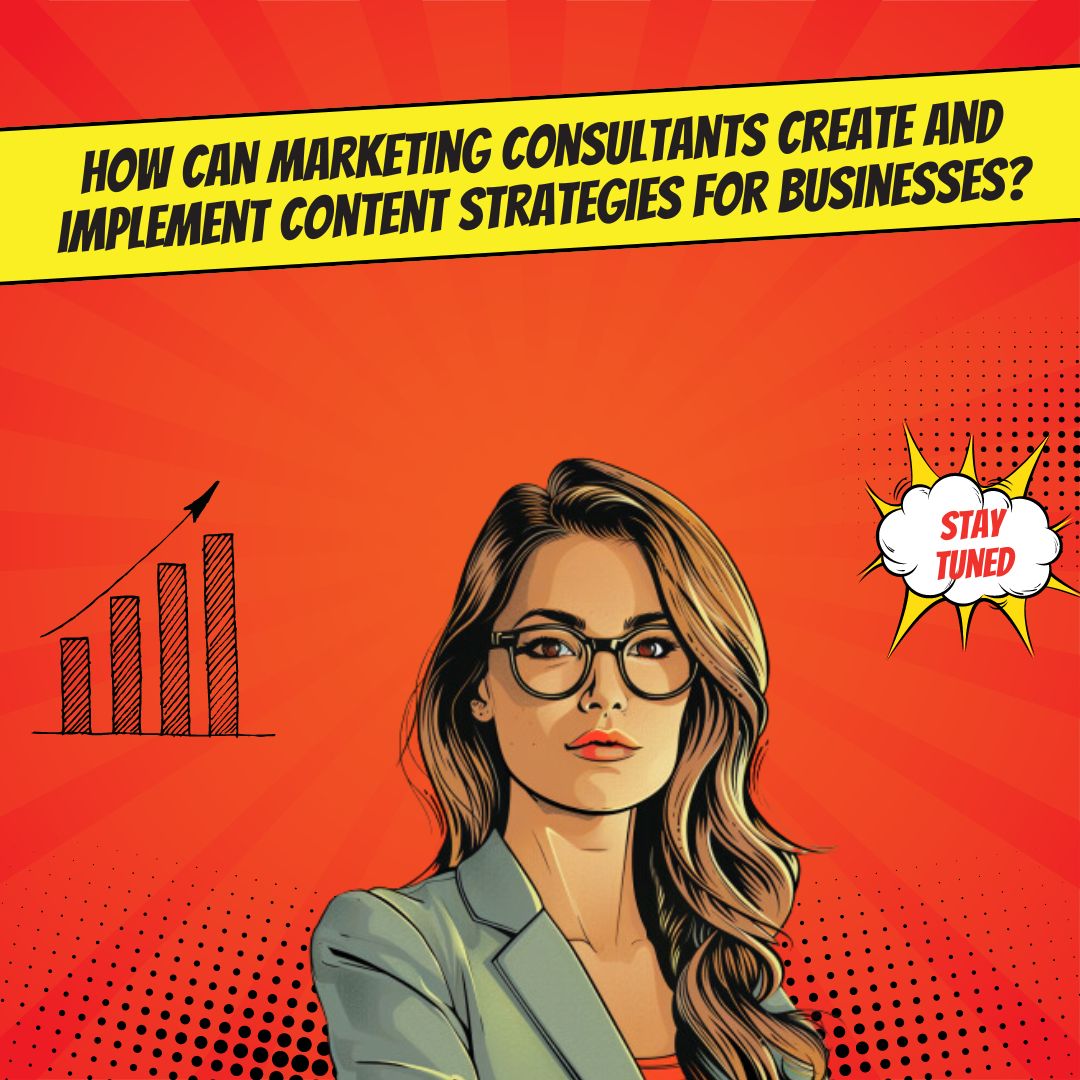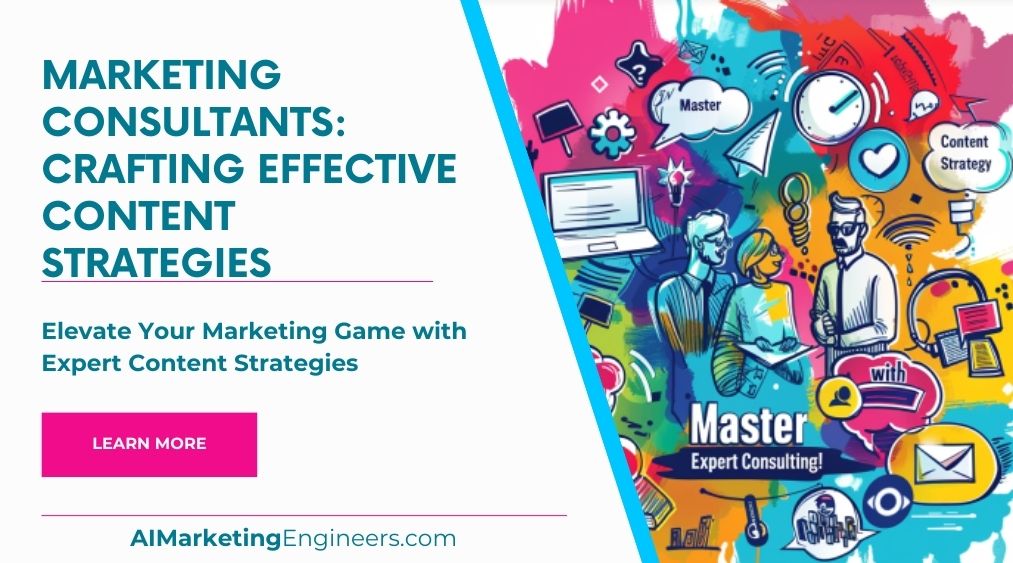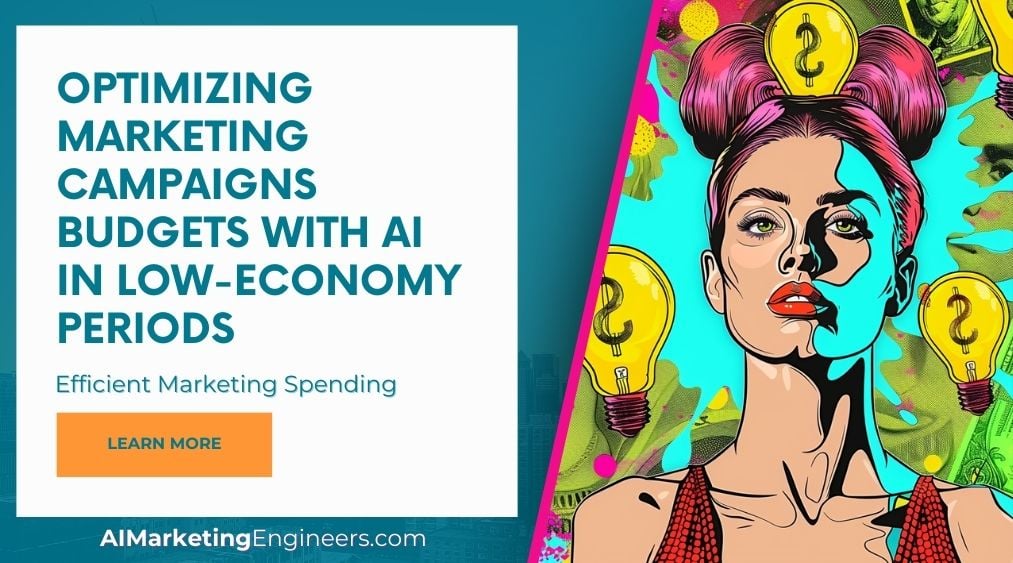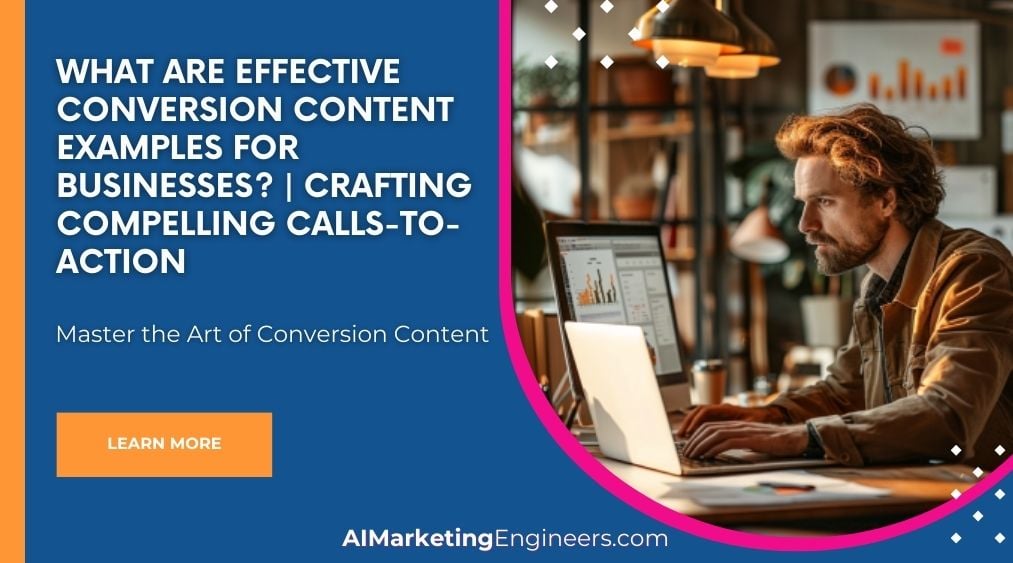Key Takeaways
✅ Define Clear Goals and Objectives: Effective content marketing for consultants starts with clear goals. Identify target keywords, create reader-friendly content, and promote it across channels. Use analytics tools to measure performance and refine strategies over time.
✅ Focus on Providing Value: Consultants should produce content that answers key questions and provides valuable insights without pushing for a sale. This approach can build long-term relationships and trust with potential clients.
✅ Targeted Content Workflow: A strategic workflow ensures each content piece serves a specific role in the customer journey. Begin with content that drives action and conversion, move to solution-focused content, and finally, create awareness stage content for maximum efficiency.
 Introduction
Introduction
Have you ever wondered what sets apart the most successful marketing consultants from the rest? It's their ability to craft effective content strategies that resonate and drive measurable results. A marketing consultant doesn't just offer advice; they align your content with clear goals and provide value that builds trust and long-term relationships. This article explores how marketing consultants operate through four essential lenses—strategy & planning, operations, digital transformation, and audience trust management—to craft impactful content strategies. You'll discover innovative perspectives and modern trends that can maximize your ROI and elevate your marketing efforts. Stay tuned for actionable insights and groundbreaking information that could transform how you approach content marketing.
Top Statistics
| Statistic | Insight |
|---|---|
| Market Size (2023): The global marketing consulting market size was valued at USD 23.17 billion in 2023. | Knowing the market size helps understand the scope and potential within the industry, crucial for strategizing and investment. |
| Market Growth: The global marketing consulting market is expected to expand at a CAGR of 3.88% during the forecast period. | This consistent growth rate reflects the industry's potential and promises future opportunities for consultants aiming to innovate and expand their services. |
| Industry Employees: The Marketing Consultants industry in the US has approximately 1.4 million employees. | A large workforce indicates the widespread reliance on marketing consultants and the industry's ability to support extensive employment opportunities. |
| Revenue Growth: Revenue for marketing consultants is anticipated to expand at a CAGR of 4.0% during the current period, reaching $87.7 billion in 2024. | Evident revenue growth highlights the robust demand for marketing consultancy services and underscores the economic health of the sector. |
| Market Share Concentration: The market share concentration for the Marketing Consultants industry in the US is 44.1%, with the top four companies generating this revenue. | This concentration suggests a competitive landscape where few top players dominate, providing insights into market dynamics and competitive strategies. |
Understanding the Role of a Marketing Consultant
A marketing consultant is a professional who advises companies on the best ways to achieve their marketing goals. They analyze a company's target market, business model, and current marketing strategy to develop tailored promotional plans. Their responsibilities often include conducting market research, identifying marketing trends, and helping to implement effective marketing campaigns.
The importance of effective content strategies cannot be overstated. A well-crafted content strategy helps businesses stay relevant, engage their target audience, and ultimately drive sales. What makes a marketing consultant invaluable is their ability to develop and execute strategies that help businesses break through the noise.
Strategy and Planning
In content strategy consulting, consultants focus on developing roadmaps and promotional strategies. Defining clear goals and identifying the right messages to convey are crucial steps in this process. Consultants also map out detailed plans for how to distribute content effectively to maximize reach and impact.
Operations
Consultants help in the coordinating and measuring of content creation and management. This involves ensuring that all content aligns with the overall marketing strategy and assessing its performance. Metrics such as engagement rates, website traffic, and conversion rates are regularly monitored to refine the strategy.
Digital Transformation Planning
Integrating technology into marketing strategies is another focal point. Consultants help businesses adapt to digital changes by incorporating new tools and platforms. Whether it's leveraging social media analytics or using content management systems, these experts ensure that technology enhances marketing efforts.
Audience Data, Privacy & Trust Management
Optimizing audience engagement involves a deep understanding of data. Consultants ensure that content strategies respect privacy laws and build trust with the audience. By analyzing behaviors and preferences, they can tailor content to better meet the needs of the target market.

Crafting a Content Marketing Strategy
A successful content marketing strategy starts by defining clear goals and understanding who your target audience is. Identifying the right types of content—whether blogs, videos, or social media posts—and appropriate distribution channels is essential. Creating a content calendar allows for organized and consistent postings, while measuring performance helps in tweaking strategies for better results.
Benefits of Working with a Content Marketing Consultant
There are several advantages to collaborating with a content marketing consultant. First, their expertise in the latest strategies and trends gives businesses an edge. This allows companies to focus on their core activities while outsourcing content creation. Lastly, consultants offer fresh insights and scalability, enabling businesses to grow without the growing pains.
Key Elements of a Content Marketing Strategy for Consultants
Consultants should focus on creating thought leadership content that showcases their expertise. Aligning such content with the firm's values and business goals strengthens the brand's identity. Additionally, maintaining consistency and quality across all content forms is critical to sustaining engagement and building trust.
Best Practices for Effective Content Strategies
Understanding consumer behavior and staying updated on digital trends is foundational for crafting successful strategies. SEO optimization and keyword research are crucial for increasing visibility. Connecting with the target audience helps in building brand awareness and loyalty. Finally, measuring and adjusting content performance ensures ongoing effectiveness and relevance.
By focusing on these areas, marketing consultants play a pivotal role in driving business success through strategic and well-crafted content.

AI Marketing Engineers Recommendation
Recommendation 1: Leverage Data Analytics to Understand Target Audiences: To craft an effective content strategy, understanding your audience is paramount. Marketing Consultants: Crafting Effective Content Strategies can greatly benefit from employing advanced data analytics. According to a report by IBM, 90% of the world’s data has been created in the last two years alone, underscoring the importance of data-driven insights. Use tools like Google Analytics or HubSpot to gather precise data on user behavior, preferences, and demographics. This approach not only refines your content but also ensures it resonates with your audience, increasing engagement and conversion rates.
Recommendation 2: Prioritize Authenticity and Personalization in Content: Current trends highlight a growing preference for genuine and personalized content. Marketing Consultants: Crafting Effective Content Strategies should focus on creating authentic content that speaks directly to individual customer needs and experiences. A study by Salesforce indicates that 84% of customers say being treated like a person, not a number, is key to winning their business. Personalize your content through targeted emails, dynamic website content, and bespoke social media interactions. This connection fosters loyalty and trust, vital elements in today’s competitive market.
Recommendation 3: Utilize AI-Powered Content Creation Tools: As technology advances, AI-powered tools are transforming content creation. Implementing tools like Grammarly, Copy.ai, or Jarvis can streamline the content generation process. These AI tools not only enhance creativity but also ensure consistency and quality in your material. Marketing Consultants: Crafting Effective Content Strategies can achieve substantial efficiency gains while maintaining high standards. Research from MarketsandMarkets reveals that the AI market in content creation is projected to grow from $2.9 billion in 2019 to $16.06 billion by 2024, indicating the increasing reliance on AI in marketing strategies.
Relevant Links
- Unlock the Power of AI in Digital Marketing
- Set Impactful Campaign Goals and Marketing Objectives
- Master Campaign Reach and Audience Size
- Analyze User Behavior and Interaction for Better Insights
Conclusion
Marketing consultants play a crucial role in helping businesses navigate the complex world of content strategies. By defining clear responsibilities and creating a strategic roadmap, they ensure that a company’s message effectively reaches its target audience. The four lenses of consulting—strategy and planning, operations, digital transformation, and audience data management—offer a comprehensive approach to crafting meaningful content marketing strategies. These strategies are not just about creating content; they are about defining goals, choosing the right channels, and measuring performance to optimize results.
Working with a content marketing consultant allows businesses to leverage expertise and stay updated on trends, freeing them to focus on core activities. Additionally, structured strategies that align with a firm’s values and goals help maintain consistent quality. Best practices such as understanding consumer behavior, optimizing for SEO, and continuously measuring performance are essential for long-term success. As businesses look forward, effective content strategies remain a vital piece in building brand awareness and connecting with audiences. Therefore, engaging a marketing consultant could be your next strategic step in enhancing your content marketing efforts.

FAQs
Question 1: What is a marketing consultant?
Answer: A marketing consultant is an experienced professional who advises businesses on marketing strategies based on research and expertise. They often work on a freelance basis and have multiple clients.
Question 2: Why hire a marketing consultant?
Answer: Hiring a marketing consultant provides an external perspective, helping to overcome internal biases and assumptions. They offer flexibility, cost efficiency, and expertise in digital marketing transitions.
Question 3: What are the benefits of hiring a marketing consultant?
Answer: They bring impartiality, strategic thinking, and expertise in various marketing areas. Consultants can analyze, assess, and make recommendations for most marketing elements, ensuring a customer-centric approach.
Question 4: How do marketing consultants measure success?
Answer: Success is typically measured by metrics such as ROI, conversion rates, bounce rates, and customer satisfaction. Consultants work with clients to define their key performance indicators (KPIs) and track progress.
Question 5: What role does content marketing play in a marketing strategy?
Answer: Content marketing is crucial for engaging the target audience. Consultants help optimize content creation and distribution to align with the client's overall strategy.
Question 6: How do marketing consultants handle lead generation and customer acquisition?
Answer: Consultants refine strategies to enhance customer acquisition and retention. They assess the client's lead generation process and recommend improvements.
Question 7: How to choose a digital marketing consultant?
Answer: Choose a consultant who aligns with your business goals and has relevant experience. Ensure they are someone you can work with long-term, and ask questions about their industry focus, portfolio, and client load.
Question 8: What to expect from a marketing consultant?
Answer: A good consultant listens, responds to ideas, works within your timeline and budget, is transparent about pricing, and continually improves their services. They should provide custom reporting and understand digital marketing.
Question 9: How much does it cost to hire a marketing consultant?
Answer: Rates vary depending on location, industry, business size, and the scope of the agreement. Individual consultants may charge $150-$200 per hour, while agencies offer project-based or retainer agreements with varying rates.
Question 10: What questions should you ask a marketing consultant?
Answer: Ask about their experience, industry focus, portfolio, client load, and initial ideas for your business. Also, inquire about their approach to measuring success, their team, and references.
Question 11: How do marketing consultants stay updated with industry trends?
Answer: Consultants stay current with industry developments to tailor strategies for maximum impact. They should be able to discuss their approach to staying updated and how it benefits their clients.

Academic References
- Widing, R. E., Jr. (2002). The Professor-Consultant: An Important Marketing Resource. Journal of Marketing Education, 24(1), 35-42. This study surveyed marketing academicians to understand their attitudes toward consulting and the scope of their consulting activities. The findings show that professors hold favorable attitudes toward consulting and work in diverse topical areas, serving various clients.
- Murphy, P. E. (2004). Ensuring Successful Outcomes with Marketing Consultants. Public Relations Quarterly, 49(3), 45-50. This course provides guidance on setting clear outcomes, writing comprehensive RFPs, managing milestones and communication, and evaluating the quality of a consultant’s work. It is designed for marketing and communications managers, public relations officers, and other stakeholders who work with marketing consultants.
- Baker, M. J., & Saren, M. (2009). References for Marketing Research. Marketing Theory: A Student Guide, pp. 67-94. This resource provides a comprehensive list of references for marketing research, including case studies and academic articles. It covers various aspects of marketing, including advertising and consumer behavior.








